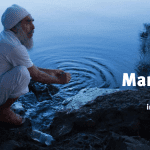Time to get back into blogging through classic Doctor Who episodes. Apologies for the long delay! In this episode, two ships collide, one being partially dematerialized at the time. This isn’t an uncommon scenario on Doctor Who – but in this case, it isn’t the TARDIS that is the partially-dematerialized ship in question!
Early in the episode we get this exchange between Romana and the Doctor which in many ways sums up the entirety of Doctor Who:
ROMANA: I don’t think we should interfere.
DOCTOR: Interfere? Of course we should interfere. Always do what you’re best at, that’s what I say. Now, come on.
The Doctor pretends to be from a galactic salvage company. A highly addictive drug is a feature in the story, with a character dealing drugs to fund research. Capitalism, morality, science, and economics intersect in ways that make the story as relevant today as it was in its own time.
A major component of the story are flora and fauna samples that are being kept in a machine – isn’t this the same device, the Miniscope, that the Third Doctor indicated had been made illegal in Carnival of Monsters? There is no explicit reference to that earlier story. The individual with the machine claims that he is preserving endangered species. But the Mandrels, one of the species, contain and can be turned into the drug Vraxoin.
Three other noteworthy bits of dialogue from the episode:
“Nothing’s inexplicable.” – “Then explain it.” – “It’s inexplicable.”
“Everybody works for somebody.”
“Idiots? They’re worse than idiots, they’re bureaucrats. They just exist to tangle people up, wrap them round and round in red tape until they can’t move.”
“Only one animal would be comfortable in an electric zoo.”
In part 3, Romana behaves in a fearful manner, not the confident and courageous way she typically does and the Doctor does. Doctor Who has a long history of taking its female characters who should have been strong leading roles, and turning them into terrified weaklings so that male characters could then come to their rescue. For this to have continued this long is disappointing.
It would have been easy to explore religion implicit in the episode given the way it explores themes of morality (including its relation to economics, with explicit mention of “profits on human suffering”), science, the rights of living things to exist and their relative value, and human nature and responsibility. But given that this is all framed in connection with the name Eden, there is much more that is being brought into the picture, much more to the Doctor’s statement that its name “rings a bell” as well as several people finding the place unpleasant or not liking it for various reasons. Nothing much is made of the biblical resonances explicitly, however.
In other Doctor Who news: A new audio adventure is of related interest (not that River Song gets directly into this particular episode, as far as I am aware). And a well-known writer of classic Doctor Who episodes has died. Read Tony Keen’s blog post for more about the late Terrance Dicks, as well as the piece about this on the Doctor Who official BBC website.
Also in Doctor Who news, Colin Baker regrets not having filmed his regeneration scene, and Christopher Eccleston has shared information about his mental health struggles while he played the character and why he did not return for the 50th anniversary special. You can have a VR experience of piloting the TARDIS. And a fan reconstruction of “Mission to the Unknown” has gotten official recognition from the BBC. Also relevant:
https://thewayofimprovement.com/2019/11/06/out-of-the-zoo-time-travel/
https://downtime2017.wordpress.com/2018/12/17/tiberian-thoughts-sheffield-steel-or-a-subjective-look-at-the-thirteenth-doctor-10-the-battle-of-ranskoor-av-kolos/
Also see the latest news about the upcoming series on the BBC’s Doctor Who website.













